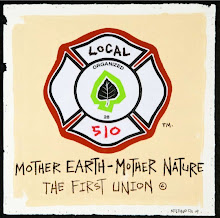 On Sunday night, Aminata Touré was named Prime Minister of Senegal. True to Touré’s style, she announced the appointment herself.
A new Prime Minister forms a new cabinet. It was thought that Touré would have the cabinet by the end of the week. She had it by Monday evening. That’s how Mimi Touré, as she is called, works.
Touré is called the Iron Lady. Every woman who rises to a certain level of government becomes an Iron Lady in the press. The men are, well, just guys.
Whichever mineral flows through the veins of Aminata Touré, she has spent all of her adult life working as a human rights and women’s rights activist, who has worked in Senegal and around the world on women’s issues and, more generally, at the intersection of social and economic justice struggles.
Until Sunday’s appointment, Touré was Senegal’s Minister of Justice. As Minister, Touré became well known, and largely popular, for far-reaching anti-corruption campaigns that reached deep, far, wide and high into the previous government’s ranks. She brought Karim Wade, son of the previous President, to trial and then to prison. She oversaw the arrest of Chad’s former President Hissène Habré and made sure the subsequent trial wouldn’t wait for decades to occur.
From her early days, from her adolescence, to the present, Touré has been an activist, a militante, and a footballeuse who played for the Dakar Gazelles. At university, Touré worked with the Communist Workers’ League. Since then, her militancy has turned to family planning, both in Senegal, Burkina Faso, Côte d’Ivoire, and around the world, working most recently with the United Nations Population Fund. At the UNFPA, Touré was Chief of the Gender, Human Rights and Culture Branch. There, she pushed and pulled to get all sorts of people, agencies, governments to begin to think and act more seriously about “gender mainstreaming”. Touré understood that, from the State perspective as well as from an analytical point of view, women’s reproductive rights are part of the governmental budget process, and so the two have to be synthesized. She has argued that women’s empowerment and gender equality are key to any kind of health program. She has argued that access to health is a human right, and that that human right is first and foremost a women’s right. Repeatedly, she has shown the world that, if not another world, then a better world is possible … now.
And she has worked to make the now happen … now. And she has often succeeded.
In her new cabinet, Touré appointed Sidiki Kaba as the new Minister of Justice. Kaba is the former head of the International Federation of Human Rights. His appointment has already come under attack because of his support for decriminalization of homosexuality. So, he’s got something going in his favor.
While Senegalese women’s groups have hailed the appointment of Aminata Touré to Prime Minister, they also note with some dismay the mathematics of her Cabinet: 4 women, 28 men.
It’s an important and newsworthy moment for Senegal and beyond, unless of course you rely on the Anglophone press. There, in the land of all the news that fits to print, nothing happened in Senegal.
But something is happening. A feminist, women’s rights, reproductive rights, human rights activist with a history of accomplishments has become Prime Minister of Senegal: Aminata Touré.
Bio
Latest Posts
Dan Moshenberg
Dan Moshenberg is an organizer educator who has worked with various social movements in the United States, South Africa, and elsewhere. Director of the Women's Studies Program at the George Washington University, he also blogs at www.womeninandbeyond.org and, most recently, co-edited/co-created Searching for South Africa: The New Calculus of Dignity (Unisa Press, 2011).
On Sunday night, Aminata Touré was named Prime Minister of Senegal. True to Touré’s style, she announced the appointment herself.
A new Prime Minister forms a new cabinet. It was thought that Touré would have the cabinet by the end of the week. She had it by Monday evening. That’s how Mimi Touré, as she is called, works.
Touré is called the Iron Lady. Every woman who rises to a certain level of government becomes an Iron Lady in the press. The men are, well, just guys.
Whichever mineral flows through the veins of Aminata Touré, she has spent all of her adult life working as a human rights and women’s rights activist, who has worked in Senegal and around the world on women’s issues and, more generally, at the intersection of social and economic justice struggles.
Until Sunday’s appointment, Touré was Senegal’s Minister of Justice. As Minister, Touré became well known, and largely popular, for far-reaching anti-corruption campaigns that reached deep, far, wide and high into the previous government’s ranks. She brought Karim Wade, son of the previous President, to trial and then to prison. She oversaw the arrest of Chad’s former President Hissène Habré and made sure the subsequent trial wouldn’t wait for decades to occur.
From her early days, from her adolescence, to the present, Touré has been an activist, a militante, and a footballeuse who played for the Dakar Gazelles. At university, Touré worked with the Communist Workers’ League. Since then, her militancy has turned to family planning, both in Senegal, Burkina Faso, Côte d’Ivoire, and around the world, working most recently with the United Nations Population Fund. At the UNFPA, Touré was Chief of the Gender, Human Rights and Culture Branch. There, she pushed and pulled to get all sorts of people, agencies, governments to begin to think and act more seriously about “gender mainstreaming”. Touré understood that, from the State perspective as well as from an analytical point of view, women’s reproductive rights are part of the governmental budget process, and so the two have to be synthesized. She has argued that women’s empowerment and gender equality are key to any kind of health program. She has argued that access to health is a human right, and that that human right is first and foremost a women’s right. Repeatedly, she has shown the world that, if not another world, then a better world is possible … now.
And she has worked to make the now happen … now. And she has often succeeded.
In her new cabinet, Touré appointed Sidiki Kaba as the new Minister of Justice. Kaba is the former head of the International Federation of Human Rights. His appointment has already come under attack because of his support for decriminalization of homosexuality. So, he’s got something going in his favor.
While Senegalese women’s groups have hailed the appointment of Aminata Touré to Prime Minister, they also note with some dismay the mathematics of her Cabinet: 4 women, 28 men.
It’s an important and newsworthy moment for Senegal and beyond, unless of course you rely on the Anglophone press. There, in the land of all the news that fits to print, nothing happened in Senegal.
But something is happening. A feminist, women’s rights, reproductive rights, human rights activist with a history of accomplishments has become Prime Minister of Senegal: Aminata Touré.
Bio
Latest Posts
Dan Moshenberg
Dan Moshenberg is an organizer educator who has worked with various social movements in the United States, South Africa, and elsewhere. Director of the Women's Studies Program at the George Washington University, he also blogs at www.womeninandbeyond.org and, most recently, co-edited/co-created Searching for South Africa: The New Calculus of Dignity (Unisa Press, 2011).
Thursday, September 5, 2013
On Sunday Night, Aminata Touré was named Prime Minister of Senegal
Posted by
la fin du siècle
at
10:26 PM
![]()
Labels: Aminata Touré, Feminist, Hisséne Habré, Karim Wade, Prime Minister, Senegal, Sénégal, Sidiki Kaba
Subscribe to:
Post Comments (Atom)





























No comments:
Post a Comment